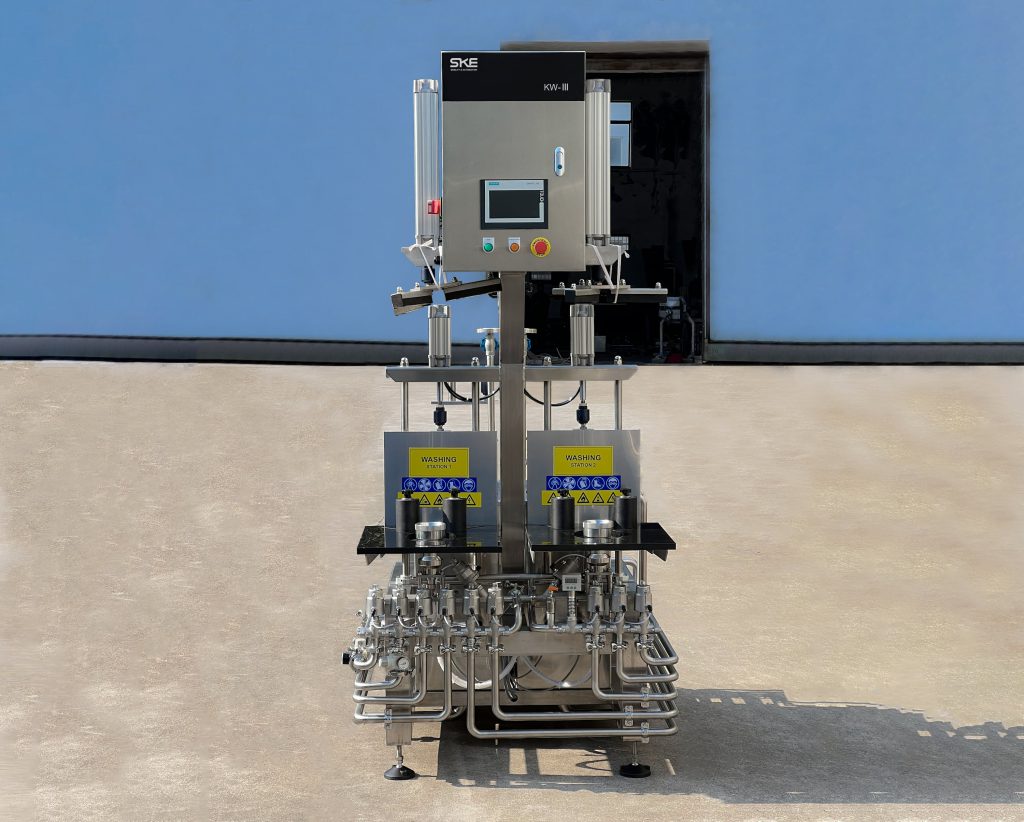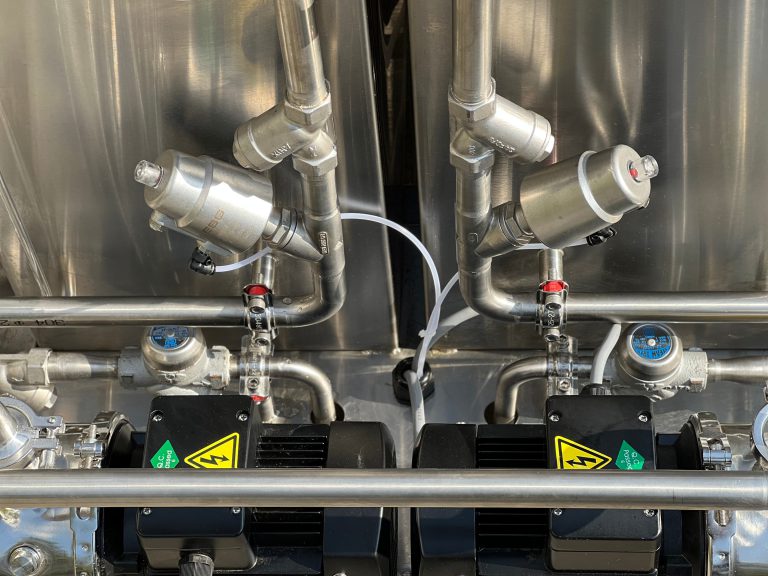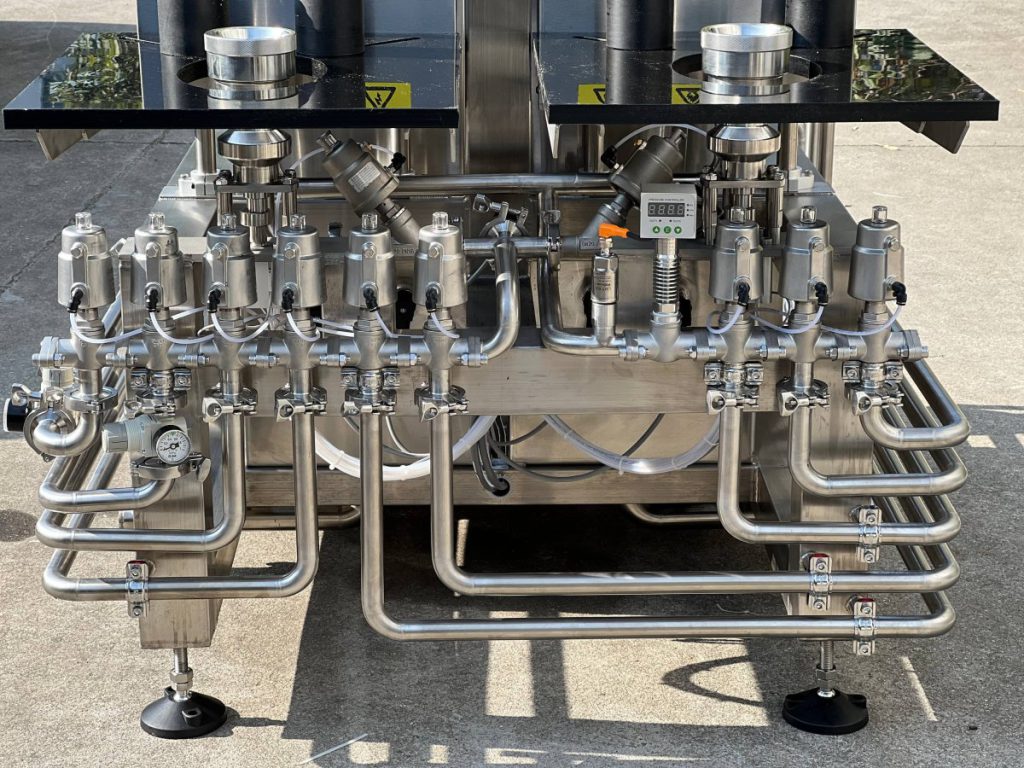Introduction

Dans le paysage industriel actuel en constante évolution, le rôle des machines de remplissage de liquides est de plus en plus crucial. Ces systèmes automatisés ont révolutionné les lignes de production en améliorant considérablement l'efficacité, la précision et la polyvalence du conditionnement des liquides dans divers secteurs. Ce blog se penche sur l'impact transformateur des machines de remplissage de liquides, en explorant leurs types, leurs avantages, leurs avancées technologiques et leurs applications pratiques.
Compréhension Machines de remplissage de liquide
What are Liquid Filler Machines?
Liquid filler machines are sophisticated devices designed to automate the process of filling containers with precise amounts of liquids. They are essential in industries where consistency, hygiene, and efficiency are paramount, such as pharmaceuticals, food and beverage, cosmetics, and chemicals. These machines range from simple gravity fillers for free-flowing liquids to complex piston fillers for viscous substances.
Types of Liquid Filler Machines
Liquid filler machines are categorized based on the viscosity and nature of the liquids they handle:
- Remplisseurs de débordement: Ideal for filling thin liquids that tend to foam, such as soaps and shampoos. These machines ensure containers are filled to the brim without spillage.
- Remplisseurs de pistons: Known for their accuracy and ability to handle thick or viscous liquids such as oils, creams, and syrups. They operate using a piston that draws the liquid into a cylinder and then dispenses it into containers.
- Remplisseurs par gravité: Suitable for liquids that flow easily, such as water, juices, and some chemicals. Gravity fillers rely on the force of gravity to fill containers accurately.
- Remplisseuses de tarières: Designed for filling powders and granular products that are often mixed with liquids. They use a rotating auger to measure and dispense precise amounts of product into containers.
Principaux avantages de Machines de remplissage de liquide
Liquid filler machines offer several compelling advantages that have reshaped production processes:
- Précision: These machines ensure consistent fill volumes, minimizing product wastage and maximizing yield.
- Vitesse: Compared to manual filling, liquid filling machine significantly increase production rates, thereby reducing labor costs and time.
- Cohérence: Maintaining uniformity in product packaging enhances brand reputation and customer satisfaction.
- Polyvalence: Liquid filler machines can accommodate various container shapes, sizes, and types of liquids, making them adaptable to diverse production needs.
- Hygiène: Automated processes reduce the risk of contamination, ensuring compliance with stringent industry standards.
Technological Innovations in Machines de remplissage de liquide
Recent advancements in technology have further enhanced the capabilities and efficiency of liquid filler machines:
- Integrated Sensors: Modern machines are equipped with sensors that precisely measure fill levels and detect any deviations, ensuring accuracy and consistency.
- Automatisation: Many liquid filling machines now incorporate PLC (Programmable Logic Controller) systems, which automate operations, optimize performance, and facilitate seamless integration with other production line components.
- Data Integration: Real-time monitoring and data collection capabilities enable operators to track production metrics, identify trends, and make informed decisions to improve efficiency and quality.
- Modularity: Modular designs allow for customization and scalability, enabling manufacturers to adapt machines to specific production requirements without extensive reconfiguration.
Études de cas : applications dans tous les secteurs
Liquid filler machines play a critical role in various industries:
- Médicaments: Precise dosage is crucial in pharmaceutical manufacturing to ensure medication efficacy and patient safety. Liquid filler machines provide accurate filling for syrups, suspensions, and other liquid medications.
- Nourriture et boisson: From bottling beverages like juices and sauces to packaging cooking oils and dressings, liquid filling machines maintain product integrity and hygiene standards in the food industry.
- Produits de beauté: Consistency is key in cosmetics manufacturing, where creams, lotions, and serums must be filled accurately to maintain product efficacy and appeal to consumers.
- Produits chimiques: Hazardous chemicals require careful handling to minimize risks to operators and the environment. Liquid filling machines ensure safe and precise filling of chemicals into containers, reducing exposure and contamination.
Tableau : Comparaison de Machine de remplissage de liquide Les types
| Taper | Suitable Liquids | Avantages | Désavantages |
|---|---|---|---|
| Remplissage de débordement | Thin liquids (e.g., soaps) | Prevents foaming | Not suitable for thick liquids |
| Remplissage à piston | Thick liquids (e.g., oils) | Highly accurate | Coût initial plus élevé |
| Remplisseur par gravité | Free-flowing liquids | Simple operation | Limited to specific liquid types |
| Auger Filler | Powders mixed with liquids | Versatile | Requires precise calibration |
Défis et considérations

Implementing liquid filler machines comes with challenges that require careful consideration:
- Entretien: Regular upkeep is essential to ensure machines operate at peak efficiency and reliability.
- Coût: While initial investment can be significant, the long-term savings in labor and reduced product wastage often justify the expense.
- Entraînement: Operators must receive training to operate and maintain liquid filling machines effectively, minimizing downtime and maximizing productivity.
- Compatibilité: Integrating liquid filling machines into existing production lines requires careful planning to ensure seamless operation and minimal disruption to ongoing processes.
Conclusion
Liquid filler machines have transformed production lines across industries, offering unparalleled precision, efficiency, and flexibility in liquid packaging. As technology continues to evolve, these machines will play an increasingly vital role in meeting the demands of modern manufacturing, driving innovation and ensuring consistent product quality.
FAQ
Q:What industries benefit most from liquid filler machines?
A:Liquid filler machines are invaluable in industries such as pharmaceuticals, food and beverage, cosmetics, and chemicals, where precise liquid handling is essential for product quality and safety.
Q:How do liquid filling machines ensure accuracy?
A:Liquid filling machines use advanced technologies such as sensors and PLC systems to measure and dispense precise amounts of liquids into containers, minimizing variability and ensuring consistent fill levels.
Q:What factors should be considered when choosing a machine de remplissage de liquide?
A:Factors include the type of liquid being filled, production volume requirements, container specifications, and regulatory compliance with industry standards.
Q:Are liquid filler machines easy to integrate into existing production lines?
A:Modern liquid filler machines are designed with modular components that facilitate integration into existing production setups, allowing manufacturers to optimize efficiency and adapt to changing production needs.

